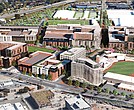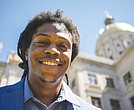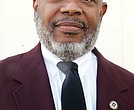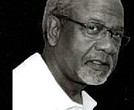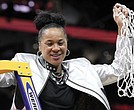VUU and VCU create dual-degree program
Jeremy M. Lazarus | 2/1/2019, 6 a.m.
Students at Virginia Union and Virginia Commonwealth universities will be able to earn dual bachelor’s degrees from both schools in engineering and science through an initiative to launch next fall.
The two universities, whose campuses are less than 2 miles apart, signed agreements Jan. 17 to implement their first joint academic programs.
Participating students would be able to earn in four years a dual degree in physics and electrical engineering, physics and mechanical engineering or chemistry and life sciences engineering, the two schools announced.
Along with completing both degrees faster, students also would gain access to the services and resources of both institutions while improving their personal and professional networks, according to the announcement.
Dual-degree programs are commonplace across the country, but rare among Richmond’s three major universities.
A now-defunct arrangement once allowed VUU math students to earn VCU engineering degrees.
The new tie offers historically black VUU long overdue recognition of the quality of its science offerings and provides majority-white VCU an approach to partly overcome its longstanding difficulty in recruiting African-American students into its engineering program.
The effort, the two schools stated, is in line with their shared goal of preparing diverse professionals.
Dr. Gail Hackett, VCU’s provost and vice president for academic affairs, and Dr. Joy Goodrich, VUU’s provost and senior vice president for academic affairs, inked the deal.
Also signing were Dr. Barbara D. Boyan, dean of the VCU College of Engineering, and Dr. Gerard McShepard, interim dean of VUU’s School of Arts and Sciences.
Dr. Hackett called the agreement “further testament to VCU’s commitment to the success of underrepresented minority students in science, technology, engineering and math fields.”
To Dr. Goodrich, the collaboration will enable VUU to “enhance our academic offerings” while also calling attention to a science program that has produced the likes of Dr. Cora B. Marrett, former deputy director of the National Science Foundation, and Dr. Yvonne T. Maddox, vice president of research at the Uniformed Services University.
The list of renowned science graduates from VUU also includes L. Douglas Wilder, who earned a degree in chemistry before going on to become a lawyer and eventually the first elected black governor in Virginia and in the nation.



